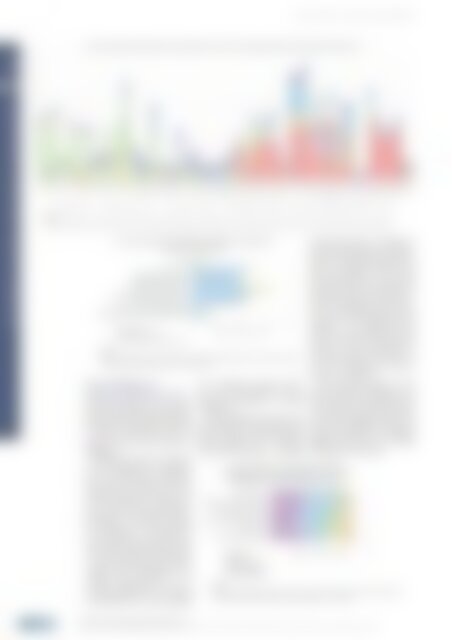atw - International Journal for Nuclear Power | 08/09.2019
Ever since its first issue in 1956, the atw – International Journal for Nuclear Power has been a publisher of specialist articles, background reports, interviews and news about developments and trends from all important sectors of nuclear energy, nuclear technology and the energy industry. Internationally current and competent, the professional journal atw is a valuable source of information. It covers in particular the following topics: Energy policies, economic and legal issues Research and innovation Environment and safety Operation and new construction Decommissioning and waste disposal Fuel
Ever since its first issue in 1956, the atw – International Journal for Nuclear Power has been a publisher of specialist articles, background reports, interviews and news about developments and trends from all important sectors of nuclear energy, nuclear technology and the energy industry. Internationally current and competent, the professional journal atw is a valuable source of information.
It covers in particular the following topics:
Energy policies, economic and legal issues
Research and innovation
Environment and safety
Operation and new construction
Decommissioning and waste disposal
Fuel
Create successful ePaper yourself
Turn your PDF publications into a flip-book with our unique Google optimized e-Paper software.
<strong>atw</strong> Vol. 64 (2019) | Issue 8/9 ı August/September<br />
DECOMMISSIONING AND WASTE MANAGEMENT 404<br />
| | Fig. 7.<br />
Responses regarding the nuclides measured with non-gamma spectrometry methods (question was mandatory, response options were given and multiple answers were possible).<br />
| | Fig. 8.<br />
Responses regarding the use of methods or specialized equipment (question was mandatory, response<br />
options were given and multiple answers were possible).<br />
Future challenges and<br />
influences (Questions 14 – 17)<br />
When asked about the factors influencing<br />
the development of radioanalytical<br />
methods <strong>for</strong> decommissioning<br />
(question 14), laboratories rated the<br />
7 proposed influencing factors as<br />
being of almost equal importance<br />
(Figure 9).<br />
Improving accuracy was reported<br />
to be “very important” or “important”<br />
by 79 % of laboratories. “Optimizing<br />
money spent on analyses” and “optimizing<br />
time spent on analyses” were<br />
rated “very important” or “important”<br />
by 76 % and 74 % of the laboratories,<br />
respectively. By comparison, “Scientific<br />
findings” were only considered<br />
“very important” or “important” by<br />
62 % of the laboratories, but was also<br />
only deemed “entirely unimportant by<br />
3 % of the laboratories. The option<br />
“changes in laws and regulations” was<br />
reported most frequently to be<br />
“ entirely unimportant” (9 %) or<br />
“not really important” (18 %). Among<br />
the laboratories, 15 % also responded<br />
that “improving detection limits”<br />
was “not really important”, but no<br />
laboratories considered it “entirely<br />
unimportant”.<br />
When evaluating the future analytical<br />
challenges in decommissioning<br />
(question 15), the answers were more<br />
diverse (Figure 10). “Optimizing<br />
radionuclide separation”, “retaining<br />
analytical know-how”, “availability of<br />
more standard material” and “improving<br />
matrix-related sample preparation”<br />
were the challenges deemed most<br />
important with 82 %, 79 %, 79 % and<br />
68 %, of the labora tories, respectively,<br />
considering them “very important” or<br />
“important” challenges <strong>for</strong> the future.<br />
The two challenges deemed least important<br />
were “developing miniaturized<br />
methods” and “developing more<br />
portable, on-site methods” with 36 %<br />
and 30 % of the labs considering this<br />
challenge “entirely unimportant” or<br />
“not really important” and only 25 %<br />
and 31 % considering it “very important”<br />
or “important”.<br />
The open style question on the<br />
greatest analytical challenges in the<br />
future specific to the participant’s laboratory<br />
(question 16) was not mandatory<br />
and was completed by 22 of the<br />
34 (65 %) participants. The answers<br />
reflected a range of future challenges<br />
(Figure 11), which can be loosely<br />
summarized into 8 groups:<br />
| | Fig. 9.<br />
Responses regarding the influence of various parameters on radioanalytical method development<br />
(question was mandatory and response options were given to be rated).<br />
Decommissioning and Waste Management<br />
Review of the Analytical Methods Used in <strong>Nuclear</strong> Decommissioning ı Alexandra K. Nothstein, Ursula Hoeppener-Kramar, Laura Aldave de las Heras and Benjamin C. Russell

















